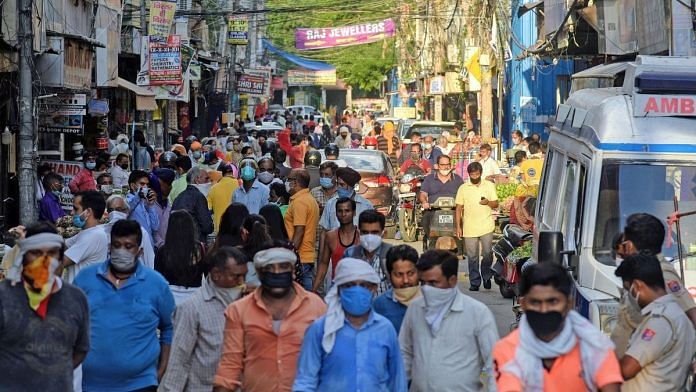
Till Thursday morning, more than two and a half thousand cases of Omicron have been reported in 24 states and union territories of the country. Cases are coming to the fore in big cities from Delhi-Mumbai. According to epidemiologist Chandrakant Laharia, the next 3-4 weeks will be tense for these cities. After this, the cases will start decreasing completely.
When the cases are fewer here, then small cities will start growing rapidly and the next 3-4 weeks will be of concern for these cities. After these cities, the virus can create havoc in the village. Omicron's pattern suggests, says Laharia, that it expands very rapidly in the first 3-4 weeks, then subsides all of a sudden.
The second thing is also that, all the infected patients are not getting admitted to the hospital. For example, 9 out of 10 Omicron infected patients in Mumbai are asymptomatic. Meaning only 1 out of 10 have symptoms, they are also mild. Most of the infected are recovering at home. However, it can cause more harm to those who did not get the vaccine.
1.4 beds for 1 thousand people, 1 doctor for 1445 people
Chandrakant Laharia further said that during the first lockdown on 23 March 2020, we had a capacity of 10,180 isolation beds and 2,168 ICU beds. Now nearly two years later, we have a capacity of 18,03,266 isolation beds and 1,24,598 ICU beds.
He said that 1.14 lakh oxygen concentrators are being provided to the states through PM Cares and Kovid-19 Emergency Response and Health System Preparedness Package-II. Funds have been sanctioned for the installation of 958 Liquid Medical Oxygen Storage Tanks and Medical Gas Pipeline systems in 1374 hospitals.
However, government data also shows that only 1.4 beds are available for 1 thousand people and 1 doctor is available for 1,445 people. There is a shortage of 6.8 allopathic doctors at Primary Health Centers (PHCs) as of 31 March 2020. There is a shortage of 76.1% specialists at Community Health Centers (CHCs).
Now our preparation is more than Delta
Laharia says that, in the case of Omicron, we are much more prepared than the Delta variant. The variant was also quickly detected. No need for lockdown now. It can be controlled only by applying necessary restrictions, but primary health care centers should have staff, medicine, and necessary equipment so that patients can be controlled at the beginning when the case increases.
Laharia says that the virus is now everywhere, so there is no use in imposing a lockdown. By imposing a lockdown, we can only slow down the speed of the virus, not eliminate it. Instead of this, people from where cases are increasing should wear masks. Travel should be done only when necessary. One should not go to crowded areas and those who did not get the vaccine should get the vaccine immediately.
HDFC investor's plight: 2.6 lakh crore rupees lost in nine days, enthusiasm for merger cooled
There was a lot of excitement among the investors as soon as the news of the merger of HDFC Bank
Protests against the hijab, which began in Iran on 16 September, are still going on. By 21 Septem
In the next few years, India will be the fastest growing economy in the world. HDFC Chairman Deep
India celebrates Independence Day on August 15, 2022. However, just a day before this, we also ce
Prime Minister Narendra Modi may visit America next month, i.e., in September. He may address the
In the Haryana assembly elections, many families successfully saved their stronghold, while some
Israel-Hamas War The Israel-Hamas war has completed one month today and there is no sign of it st
The heartbreaking Air India plane crash in Ahmedabad, Gujarat not only took away hundreds of live
Sushmita Sen and Rohman Shawl were in a relationship for many years. Even though Rohman was young
China's action on the air border, Chinese plane passed close to Indian soldiers
China has once again violated the Indian airspace. A Chinese Air Force aircraft flew very close t